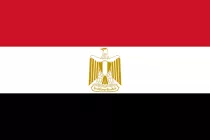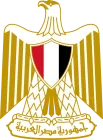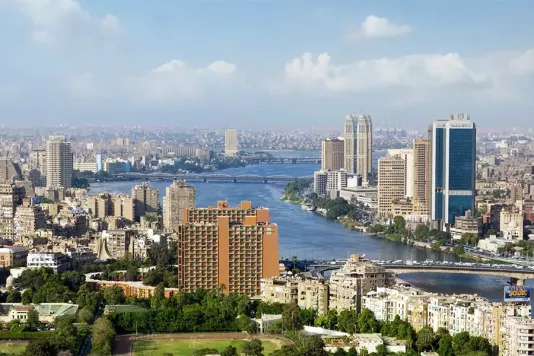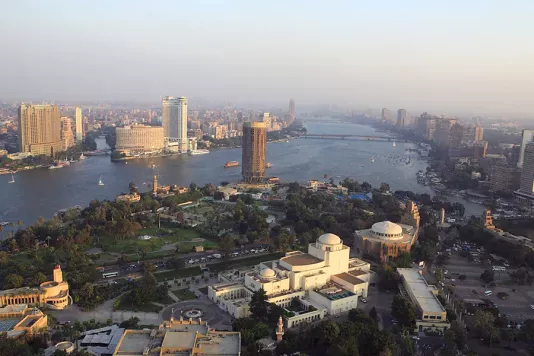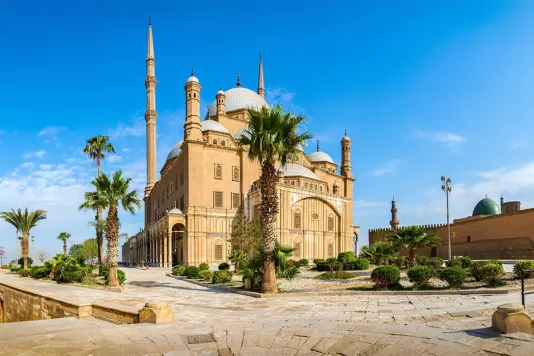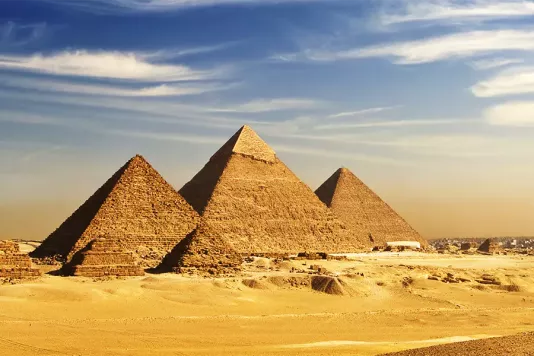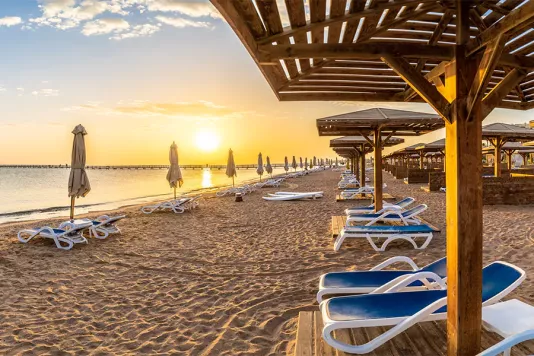Egypt
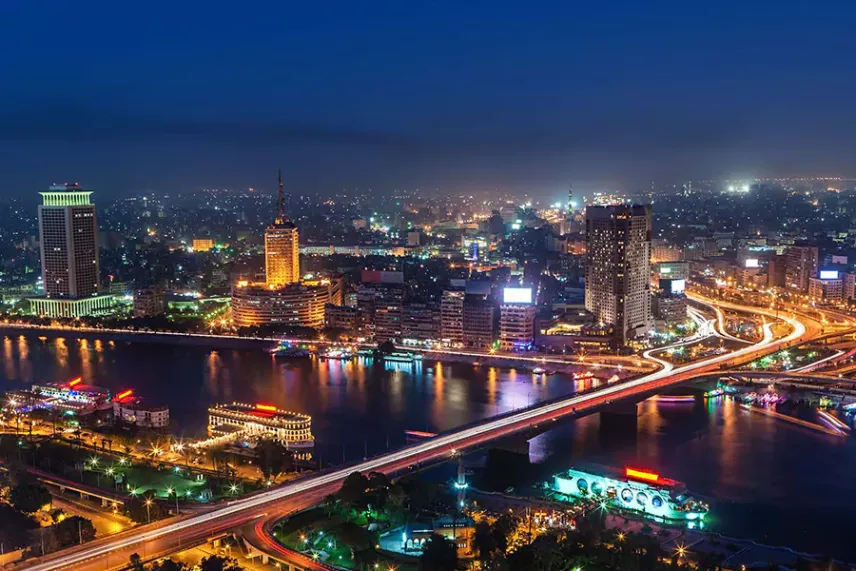
Geographical Location of Egypt
Egypt is a country where most of the nature is desert. Through the desert country, the Nile River flows from south to north. The banks of the river are fertile oases in the dry desert landscape. Further to the east is the mountainous Sinai Peninsula. The peninsula is separated from the rest of the country by the Suez Canal, which connects the Mediterranean and Red Seas. Almost the entire population lives along the Nile, at the Suez Canal or in the great river delta where the Nile flows into the Mediterranean Sea. The climate is hot and dry throughout the country, with the exception of the humid delta zone in the north. Along the coast there may be some light rainfall, while inland rainfall is very rare.
The Nile is one of the most endangered rivers in the world. Pollution, dam construction and climate change are putting the river at risk. The Nile was dammed to make the amount of water carried by the river more uniform. Despite this, the water level of both the river and the artificial lake behind the dam is determined by the amount of rainfall and climate from which the Nile receives its water. This means that the Nile, which is the entire basis of life in Egypt, is very vulnerable to climate change, new dams or pollution outside the country.
Brief History of Egypt
Egypt was the center of one of the world's oldest and most influential civilizations. From about 3000 BC. Egyptian pharaohs ruled the country for more than 2,000 years. Great technological, cultural, political, mathematical and religious innovations made Egypt one of the most powerful and wealthy countries in world history.
Beyond the 10th century BC. The power of the pharaohs was challenged, and Egypt fell under the rule of other great kingdoms. The country was ruled by, among others, Nubia, Persia, the Macedonian Empire and the Roman Empire. In the 6th century, the Arabs brought Islam to the country. From the 16th century, Egypt became part of the powerful Muslim Ottoman Empire. From 1882 to 1922, the country functioned as a British colony. Egypt became independent in 1922, but British influence continued to be felt in the country.
During World War II, Egypt emerged as an Arab superpower. Rising nationalism led to several wars with European powers and neighboring Israel between the 1950s and 1980s. After more than 20 years of dictatorship with Hosni Mobarak in power, large demonstrations in 2011 led to his resignation. The popular uprising was part of the Arab Spring, when the population of several Arab countries demanded more democracy.
After the 2011 revolution, the political system was changed to strengthen democracy. Free parliamentary and presidential elections were held for the first time, but new demonstrations led to the new president also being forced to resign. The military took power for a time before new elections were held. The winner of that election has ruled the country ever since.
Society and Politics of Egypt
Egypt is a republic with a strong presidential government. The President is the head of state and is elected directly by the people for a maximum of two four-year terms. The president appoints the government and is the commander-in-chief of the armed forces. The president is the commander-in-chief of the armed forces and appoints the prime minister along with the government. In practice, most power rests with the president.
The incumbent president has consolidated his power. The creation of political parties based on religion or ethnicity is illegal. Among other things, an important power factor and the Muslim Brotherhood movement are banned. Although religion is the most important influencing force in society, its influence on politics has diminished. Religious extremism has become more widespread since the 1990s. The Sinai Peninsula in particular has become the center of a growing extremist movement.
In Egypt, women are severely underrepresented in the labor market, politics and the judiciary. Women also earn significantly less on average than men. Traditions that maintain the family's reputation are important in society.
Economy and Trade of Egypt
Egypt is the region's most populous country and North Africa's largest economy. The economy is built on agriculture, industry, tourism and revenues from the Suez Canal. The country has significant oil reserves, but they are small compared to other Arab countries. A significant part of the population is employed in agriculture. In particular, cotton production and textiles are important industries.
The country imports a lot of food because, due to rapid population growth, there are relatively few areas suitable for agriculture. Tourism has traditionally been an important industry, but political unrest in recent years and rising religious extremism have led to a decline in tourist numbers.
Egypt is struggling with wide disparities between rich and poor. About 30 percent of the population lives below the national poverty line. The EU is the largest trading partner, and imports from China are growing. Trade in the region has increased in recent years, but imports greatly exceed exports. Food, machinery and transport equipment are the most important imported goods.
